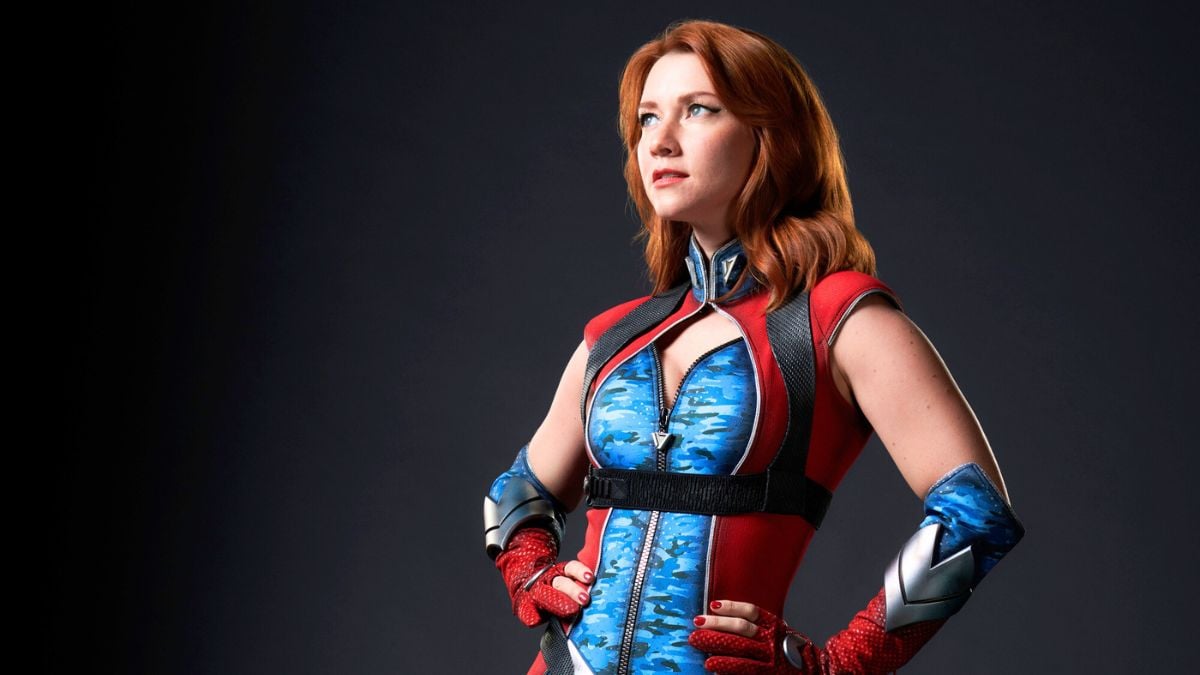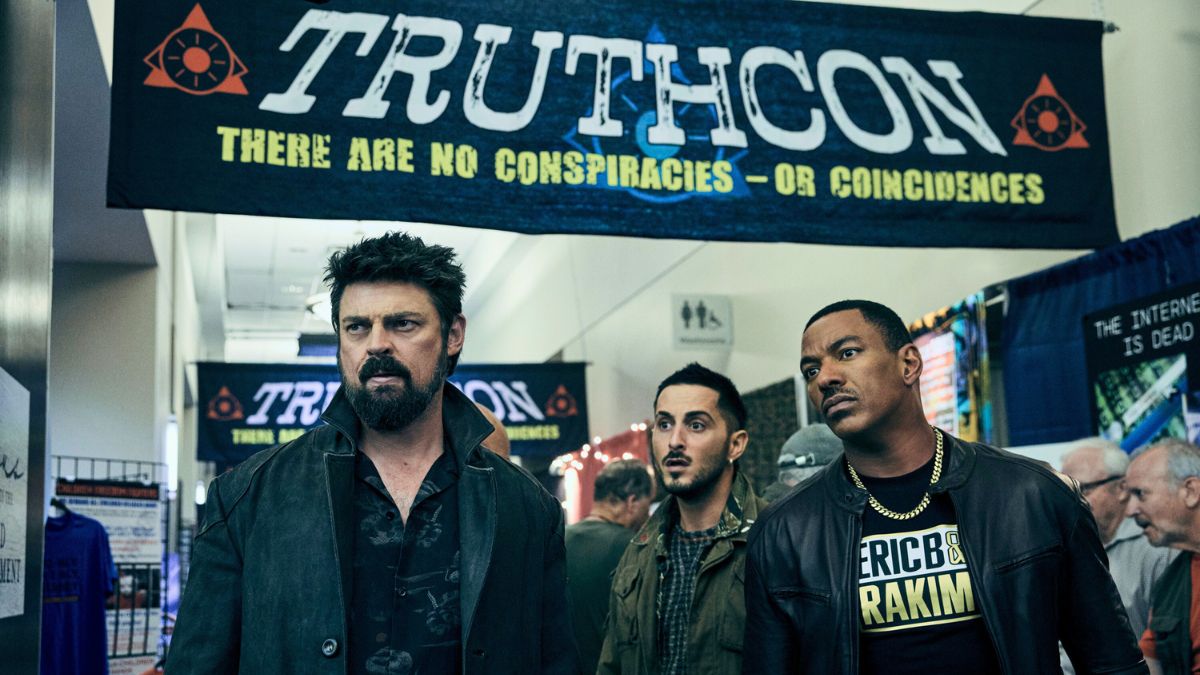Even if The Boys is known for its bloody take on superheroes, the show often does a fantastic job with political parody. In Season 4, The Boys perfectly summarizes why conspiracy theories are so popular.
The first three episodes of The Boys Season 4, now available on Amazon’s Prime Video, follow the black ops team as they try to learn more about Homelander’s (Antony Starr) dangerous new plan. After killing a civilian in public, Vought’s mightiest superhero has decided to play the political game in broad daylight instead of hiding in the shadows. To do that, Homelander enlists Sister Sage (Susan Heyward), the most intelligent person on the planet.
While following Sage, the Boys end up at Truthcon, a convention dedicated to conspiracy theories. The episode makes fun of some of the most popular conspiracy theories, such as Flat Earth and Lizard People. However, it also takes time to explain why many people dedicate their lives to conspiracy theories.
The Boys uses Firecracker to explain the appeal of conspiracy theories

Sister Sage is at Truthcon to enlist Firecracker (Valorie Curry), the head of a podcast named Truthbomb. In her podcast, Firecracker promises to reveal the “truth” about Starlight (Erin Moriarty) to hundreds of followers. As expected, that “truth” is just a bunch of nonsense about how Starlight helps multiple Hollywood figures find underaged sex slaves.
Firecracker’s audience applauds her supposed courage to talk about what the media “hides” from the U.S. citizens, and her words make Homelander followers angrier against Starlighters. It’s easy to understand why Sister Sage wants to bring Firecracker onboard her plan, as she aims to increase the schism between the two sides of the polarized political landscape.
Sister Sage doesn’t care what Firecracker truly thinks; the podcaster is just another pawn in her dangerous game. Yet, Sage still pressures Firecracker to admit she’s making up stories to increase her audience numbers. Firecracker eventually tells Sage the truth, underlining how she’s selling “purpose.” That is a powerful line that perfectly summarizes real-world conspiracy theorists.
From the outside, it’s easy to see conspiracy theories are mostly fabricated gibberish. It’s even easier to make fun of whoever believes in these twisted discourses. However, Firecracker knows that people hold tight to conspiracy theories because their world doesn’t make sense anymore.
Conspiracy theories offer individuals the opportunity to regain a sense of control over their own lives. The economy is in shambles, people struggle to put food on their tables and have a roof over their heads, the environment is being destroyed by a handful of greedy corporations, and billionaires increase their profit margins every day. It’s hard to be hopeful about the future and feel that your actions matter in the long run. So, conspiracy theories give a straightforward answer that people can use to pin the blame for everything on a particular group of enemies that must be destroyed at all costs.
Furthermore, conspiracy theories are also incredibly popular with more conservatives because the world feels even more chaotic to them. People who hold tight to archaic ideas of gender, sexuality, and race feel less at home in a world that’s progressively becoming more accepting of differences. That’s why so many conspiracy theories paint minorities as villains, as this gives a sense of comfort and allows them to reinterpret the world through the lenses they are used to wearing.
There are whole communities built around conspiracy theories, safe spaces where disoriented people can find structure and genuine human bonds — or, as Firecracker puts it, purpose. That’s why it’s so hard to dismantle conspiracist groups, especially since most people prefer to see these people as lunatics who should be joked about. This attitude only increases the abysm between “us” and “them,” ultimately making society more hostile and pushing even more people to search for purpose in conspiracy theories.
It’s impressive that The Boys has such clarity about the workings of conspiracy theories. Since 4 echoes the bipartisan division of U.S. politics, it would be easier just to pick a side and paint the other one as simply evil and dumb. Yet, Season 4 genuinely tries to understand what makes people believe in the most farfetched stories ever, and how power-hungry media figures use conservatism to make money. It’s not enough to bash conspiracy theorists; it’s equally essential to recognize how the lack of perspective facilitates the choice for extremism.

